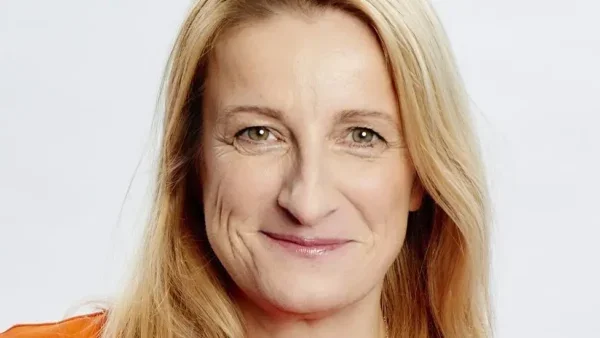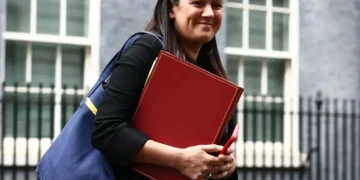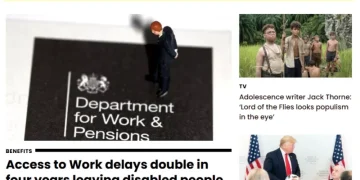
Former Mirror editor Alison Phillips is hoping she can make crime pay via a new weekly podcast co-hosted with ex-Metropolitan Police chief Bernard Hogan-Howe.
Crime Scene, from podcast network Podmasters, has launched amid growing popularity for true crime in audio exemplified by the success of The Trial series at the Daily Mail and Serial (now owned by the New York Times).
Speaking to the Press Gazette podcast, Phillips said Crime Scene will examine the process and procedure going on behind high-profile investigations.
It will also look into the relationship between journalists and the police which was particularly chilly during Hogan-Howe’s time at the Met from 2011 to 2017 amid heavy-handed arrests of journalists and unlawful police intercepts of journalists’ call records.
She said: “Over the years it’s been quite a fractious relationship. And I think that also is one of the things that we’re going to be looking at in this podcast because it’s in many ways a mutually dependent relationship because the police over so many years have really needed the media to communicate what’s going on when they’re both looking for witnesses, but also to communicate to the public what the reality is around crime on our streets.
“And at the same time, there’s no doubt journalists have needed information from the police because we want to report on stories that matter to people…
“In the last few years when the kind of free flow of information between journalists and police has really ground to a bit of a halt. I think we saw it particularly in the Nicola Bulley case, the poor woman that went missing in the river. And then again, we saw it following the horrendous murders in Southport last year, which then led to misinformation circulating on social media. So if that relationship between the police and the media can work well, it is hugely valuable for all. If it doesn’t, it can be very bad.”
She added: “I do think that there is a huge fascination in looking behind the scenes on investigations. So if you look at something like Line of Duty, some of the most popular bits of that weren’t the high speed chases and all that. It was when they were actually sat in the interview room. Or you look at something like 24 Hours in Police Custody. It’s because people are interested in what the process is.
“And so we’re going to very much be looking at crime from the perspective of how the police would conduct an investigation and how the media would cover that investigation and what the bigger issues are.”
The podcast will be ad-funded initially with ambitions to build up a paid membership.
Phillips stepped down as Mirror editor-in-chief in early 2024 amid ongoing cutbacks at a title which has seen revenue decline drastically in recent years along with falling print circulation.
Asked for her views on future revenue models for tabloid journalism, she said: “I think you can play on the points of difference and the points of brilliance of your title. And hopefully there is some way of monetising that in some way in the future.
“It’s not necessarily going to be a full on subscription model for anyone, but I think you can look at things like Mail+ and then what The Sun’s doing at the Sun Club and you can see that there are some opportunities for distinctive, high-quality content, but within the mainstream environment.”
In 2016 Phillips was launch editor of a short-lived national daily newspaper called The New Day, which was intended to focus on positive news. With benefit of hindsight, Phillips believes the title might have worked better as digital product.
She said: “I think within every story, there is always a strand that you can pull at, which might mean that there’s a positive way that something could play out in the future. And I think what’s quite interesting is in the sort of decade since then, if anything, this country has become even more cynical and more angry.
“And I think we’re seeing that play out in our politics and this sort of sense of hopelessness, which really isn’t benefiting anybody.
“One of the things that I really worry about far more in a way than the extremes within our media, the extremes of left and right, I think far more concerning is news avoidance and the number of people who are taking a big step back from consuming any news.
“And it particularly worries me around women. I know some of this is anecdotal and some of it is data led, but I know a lot of women who are saying ‘I just can’t face the news anymore’. It kind of began about Brexit and it went on sort of during Covid and then it went on during the Ukraine [war].
“I think people feel that a lot of the culture wars stuff we’ve seen and the angry shouting and then Donald Trump, they’re just sort of thinking, no, actually, I don’t want to put myself through that when actually my family, my life, my job is kind of all right. It’s okay. And so why would you put yourself out there into this maelstrom of negativity?
“So I do think if we do want to engage more people in news, I think we’ve got to think about how we present that news. I’m not talking about happy clappy news. I’m just talking about a more balanced approach to news where not everything is horrendous.”
The post Ex-Mirror editor Alison Phillips on true crime, the future of tabloids and positive news appeared first on Press Gazette.





























